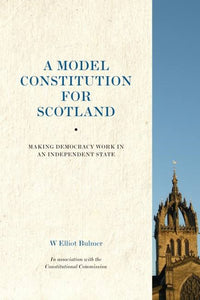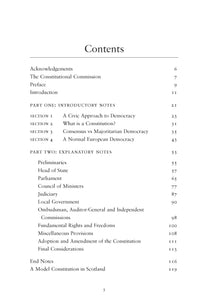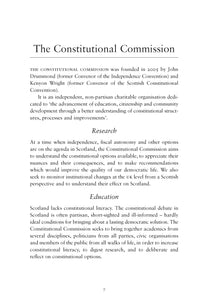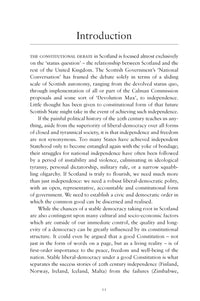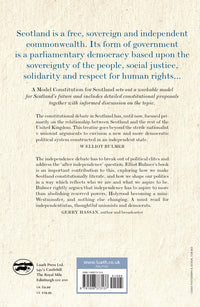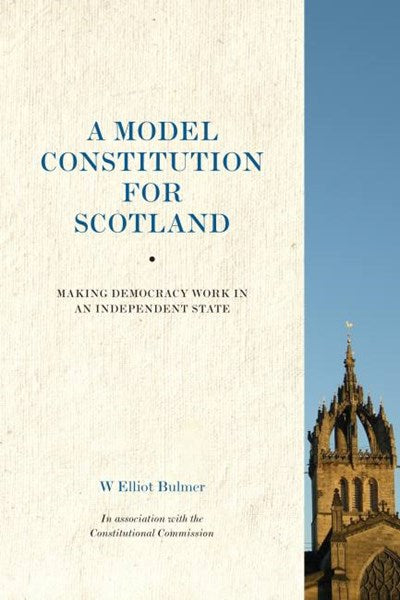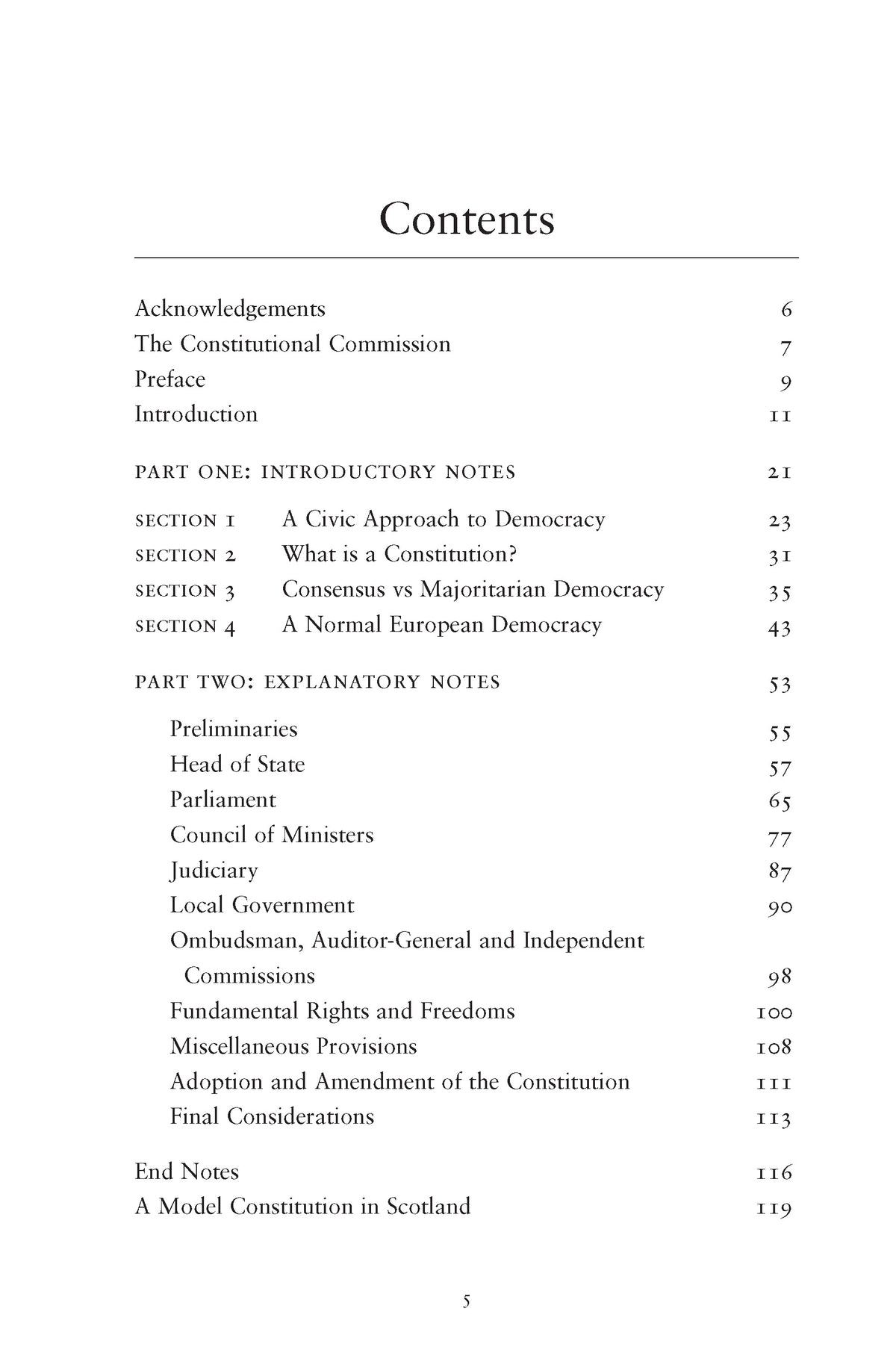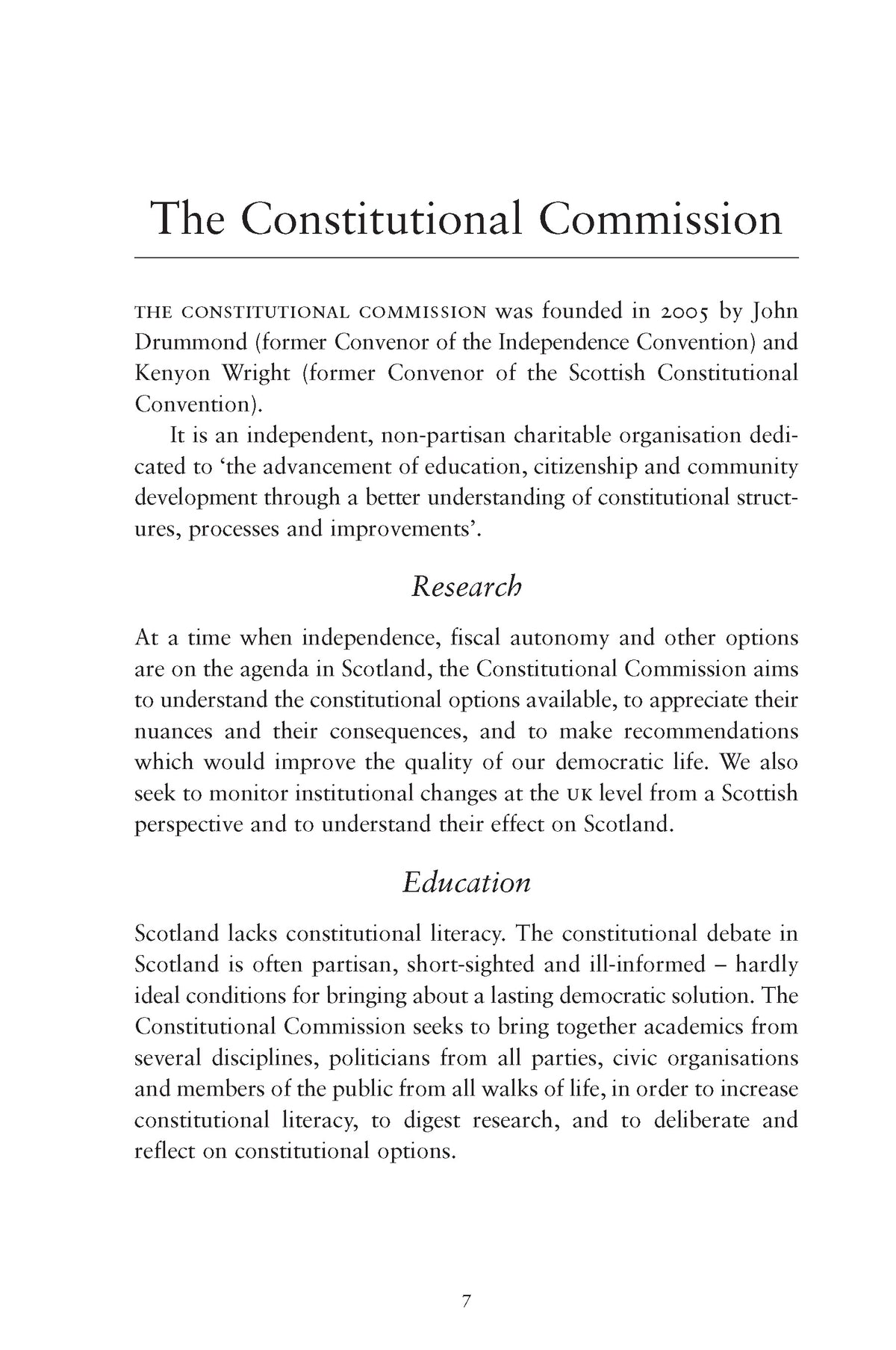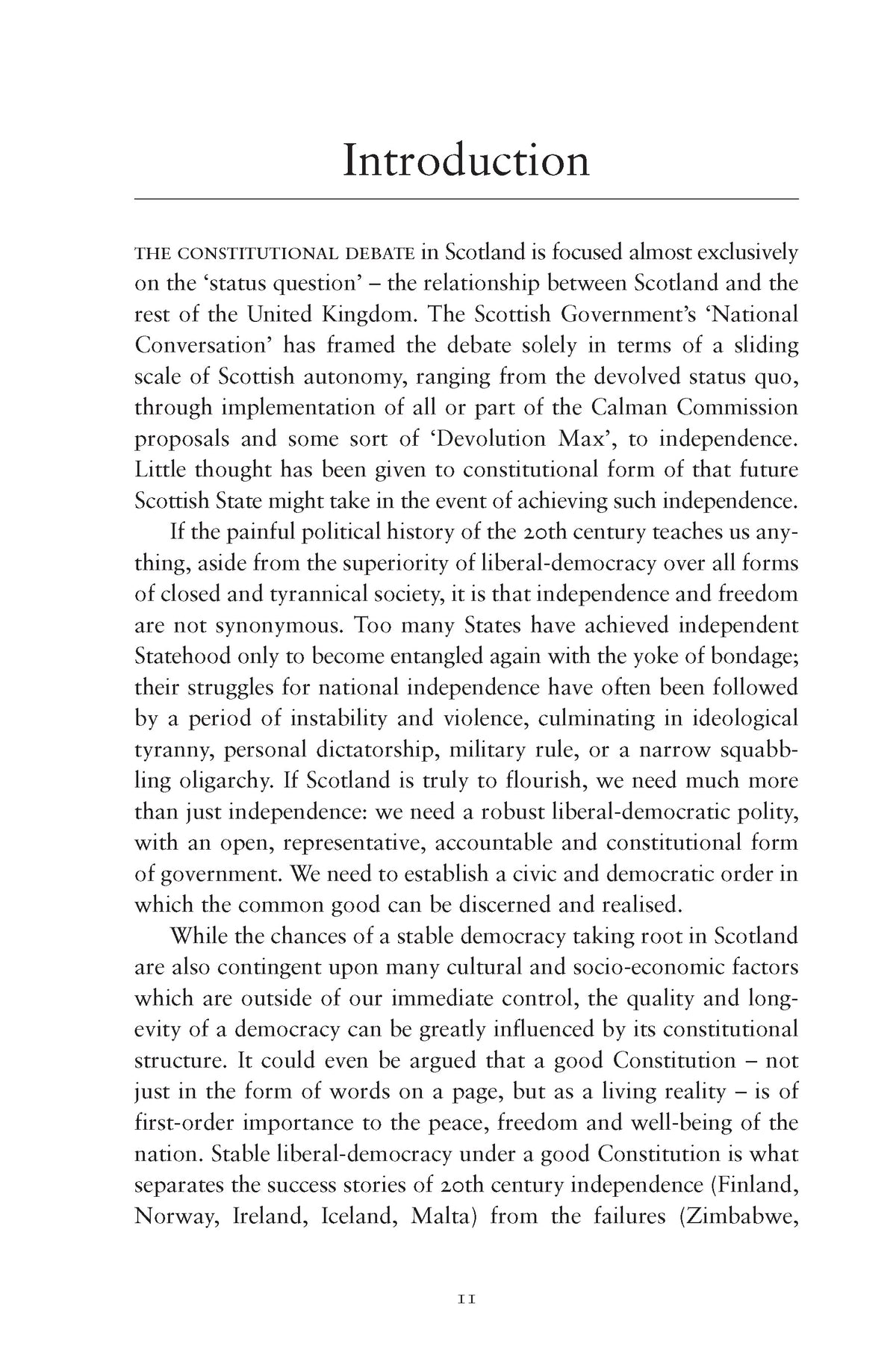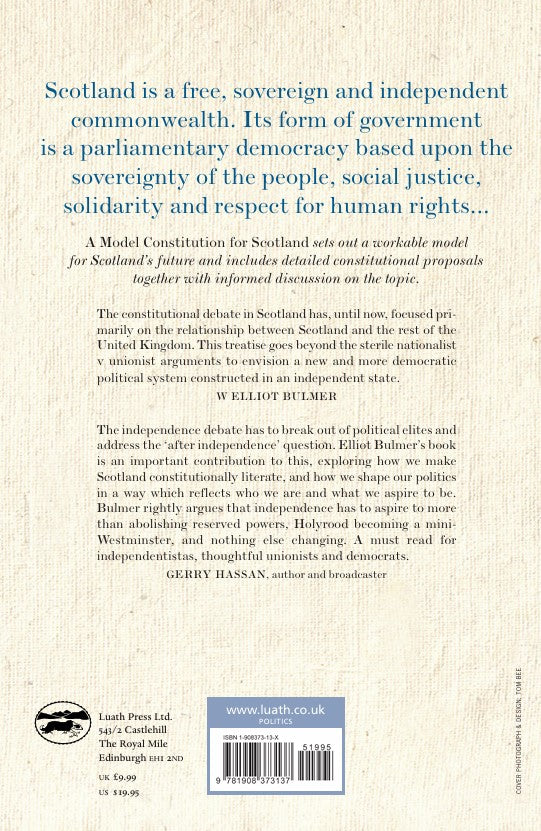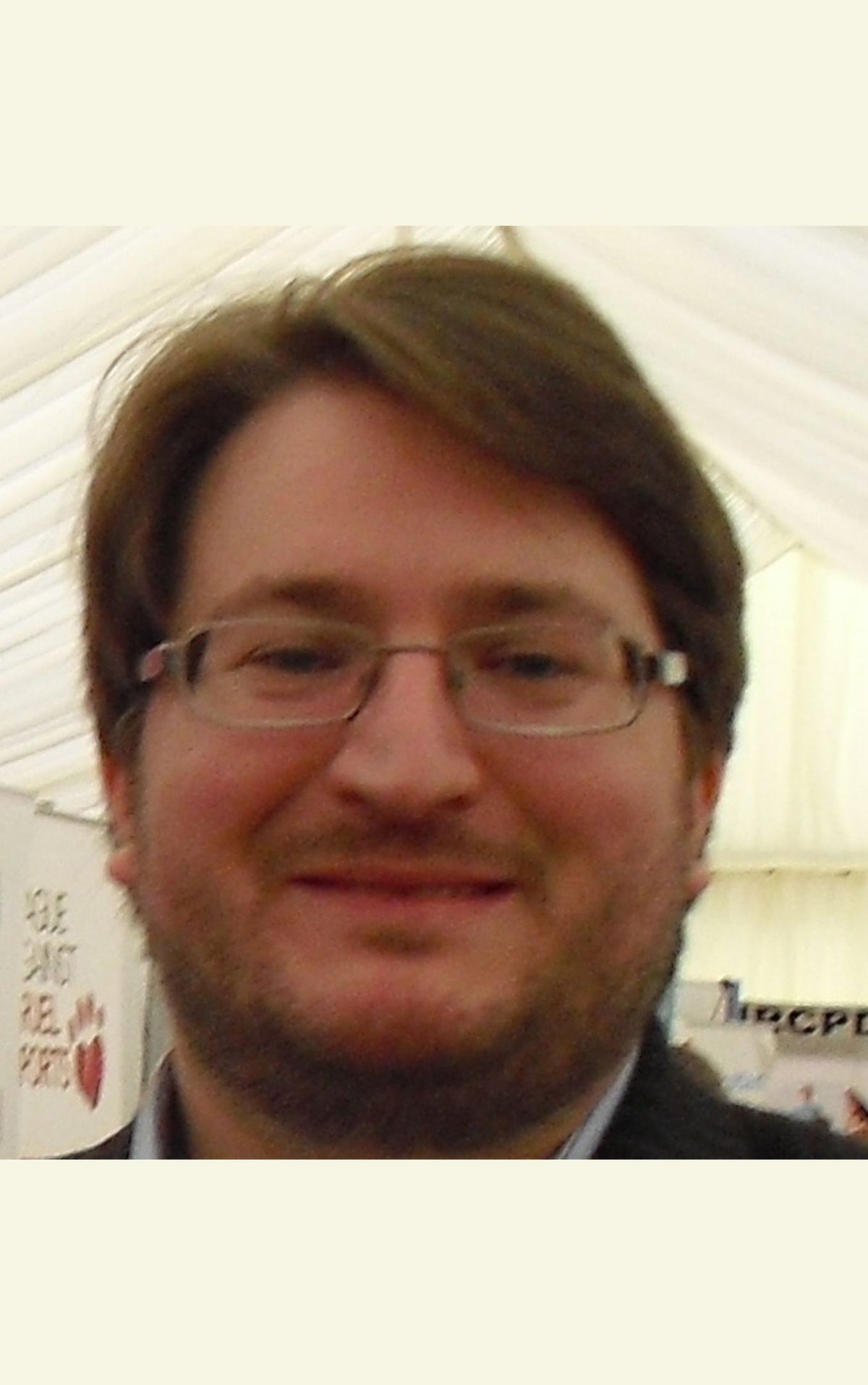A Model Constitution for Scotland
- Regular
- £7.99
- Sale
- £7.99
- Regular
- £6.66
- Unit Price
- per
Our Ebooks are powered by Glassboxx
Click here to learn about our Ebooks.
About the Book:
Scotland is a free, sovereign and independent commonwealth. Its form of government is a parliamentary democracy based upon the sovereignty of the people, social justice, solidarity, and respect for human rights...
The constitutional debate in Scotland has, until now, focused primarily on the relationship between Scotland and the rest of the United Kingdom. This treatise goes beyond the sterile arguments of nationalists and unionists to envision a new and more democratic political system constructed in an independent state. W ELLIOT BULMER
A Model Constitution for Scotland sets out a workable model for Scotland's future and includes detailed constitutional proposals and informed discussion on the topic.
The independence debate has to break out of political elites and address the 'after independence' question. Elliot Bulmer's book is an important contribution to this exploring how we make Scotland constitutionally literate, and how we shape our politics in a way which reflects who we are and what we aspire to be. Bulmer rightly argues that independence has to aspire to more than abolishing reserved powers, Holyrood becoming a mini-Westminster, and nothing else changing. A must read for independentistas, thoughtful unionists and democrats. GERRY HASSAN, author and broadcaster
Videos:
Reviews:
Bulmer poses the greatest question for an Independent Scotland: how will Scotland be governed? ... A Model Constitution raises this question and presents a starting point for the immense task of writing Scotland’s Constitution. For this reason A Model Constitution is necessary reading for all those debating Scotland’s future. THOUGHTSFROMTHEKELVIN.WORDPRESS
About the Author:
 ELLIOT BULMER graduated with an MA(Hons) in Arabic and Politics from the University of Edinburgh in 2000, and then joined the Royal Navy as a Logistics Officer. He saw service at sea in ships and submarines and spent six months leading a special operations (PSYOPS) team in Iraq. On leaving the Navy in 2006 he embarked on postgraduate studies at the University of Glasgow, focusing on constitutional design, while teaching undergraduate courses in comparative politics, history of political thought and nationalism. In addition to his research, teaching and writing, he has since 2008 been involved in the Constitutional Commission, of which he is currently Research Director and Vice-President. He is married and lives in Dunblane, where he enjoys communing with nature, reading, real ale and learning the banjo.
ELLIOT BULMER graduated with an MA(Hons) in Arabic and Politics from the University of Edinburgh in 2000, and then joined the Royal Navy as a Logistics Officer. He saw service at sea in ships and submarines and spent six months leading a special operations (PSYOPS) team in Iraq. On leaving the Navy in 2006 he embarked on postgraduate studies at the University of Glasgow, focusing on constitutional design, while teaching undergraduate courses in comparative politics, history of political thought and nationalism. In addition to his research, teaching and writing, he has since 2008 been involved in the Constitutional Commission, of which he is currently Research Director and Vice-President. He is married and lives in Dunblane, where he enjoys communing with nature, reading, real ale and learning the banjo.

